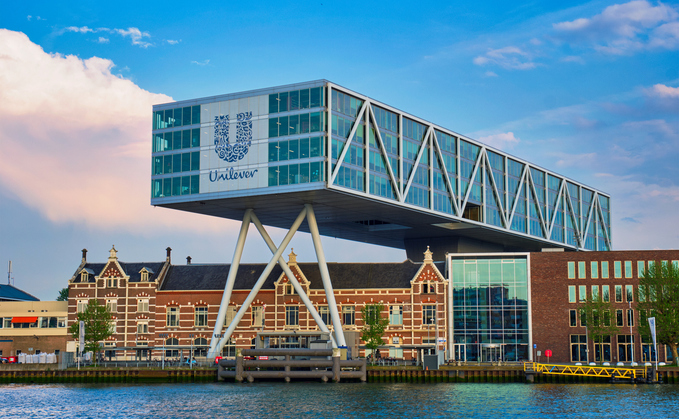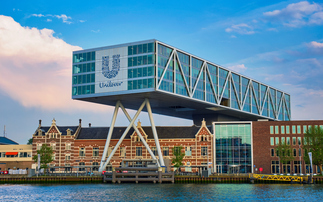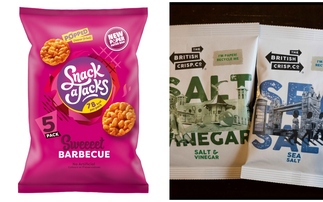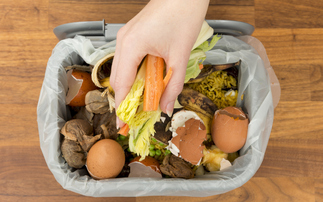Credit: iStock
Consumer goods giant's new CEO Hein Schumacher says 'I need to drive performance in the company', as he confirms watering down of several high profile ESG goals
Unilever is reportedly set to scale back a handful of its environmental and corporate social responsibility targets, including several goals to reduce its use of virgin plastics.
In an interview with news agency Bloomberg, the consumer goods giant's CEO Hein Schumacher said the company would relax some of its key targets as he looks to "drive performance in the company".
The Anglo-Dutch company - which owns over 400 household brands such as Dove, Persil and Sure - has long been regarded as a trailblazer in the adoption of sustainable business models and in 2019 set its sights on halving its use of virgin plastics worldwide by 2025.
But now the company has said it will aim to reduce its virgin plastic use by just 30 per cent by 2026, with the difference accounting for more than 100,000 tonnes of new plastic each year compared to the previous goal, according to Bloomberg.
The change was confirmed this morning in an update on Unilever's website, which also includes a new target to achieve a 40 per cent reduction in virgin plastic use by 2028.
Targets surrounding recyclable packaging also appear to have been watered down. Previously the firm had set a goal to ensure all its packaging was recyclable, reusable, or compostable by 2025, but that target date has been pushed back to 2030 for rigid plastics and 2035 for flexible plastics.
In addition, the company has scaled back several of its environmental, social, and governance (ESG) targets, with a commitment to pay all its direct suppliers a living wage by 2030 reportedly replaced by a living wage promise covering suppliers of half of its spending on goods and services by 2026.
A pledge to spend €2bn a year with diverse businesses worldwide by 2025 has also been dropped along with a commitment that five per cent of its workforce is be made up of people with disabilities by the same year, Bloomberg reported.
Unilever has long been regarded as a global leader on corporate sustainability, with former CEO Paul Polman, who held the role for a decade until 2019, arguing the pursuit of 'purpose' should sit alongside financial goals.
The focus on sustainability was largely continued under Polman's successor, Alan Jope, but several years of weaker than expected commercial performance has resulted in calls from some activist shareholders for the company to dial down its focus on sustainability in favour of cost-cutting and measures to deliver more immediate financial returns.
In a blog post published on Unilever's website this afternoon, Schumacher sought to explain the company's refreshed approach to sustainability, which he said would from now on focus on four core areas: climate, nature, plastics and livelihoods.
"Our updated commitments are very stretching, but they are also intentionally and, unashamedly, realistic," he writes. "We are determined that Unilever will deliver against them, just as we are determined to perform against our financial goals. We want to set sustainability ambitions which are credible, which we believe we can deliver against, and which have real positive impact."
The blog post adds: "At Unilever we want to do fewer things and with greater impact. Our refreshed sustainability agenda – with more focus, urgency and systemic change - is no exception."
Despite the refreshed approach, however, it understood the majority of the firm's wider green goals remain in place, including its overarching target to achieve net zero emissions across its value chain by 2039.
With regards to plastics, the company also remains committed to using 25 per cent recycled plastic in its packaging by 2025, and to collecting and processing more plastic packaging than it sells by 2025.
But speaking to Bloomberg, Schumacher highlighted the challenge of securing the supportive policy frameworks and infrastructure that would have helped the company deliver on its plastic waste goals.
"On plastics, you need governments, you need retailers, you need partners in the petrochemical industry. You need recycling systems that match," he said.
More broadly, Schumacher also suggested global economic and geopolitical pressures had prompted the decision to dial back on some of Unilever's sustainability goals.
"It's cyclical," he said. "When you have a huge drought for a number of months but everything else is going fine, the attention is on climate. These days it's about wars and rightly so, that's at the forefront."
However, the Dutch businessman said he did not regret the sustainability targets set by his predecessors. "I think that was a time in which they had to imagine a world in which big ambitions were possible," he said. "And that was probably right at the time, but I have to now bring it back to something that I feel we can all really deliver on. I need to drive performance in the company."
The news comes just ahead of the latest round of talks to agree a new Global Plastics Treaty, which are set to take place in Ottawa, Canada next week.
This morning a group of 160 financial institutions with $15.5tr of combined assets called on governments to deliver and ambitious international treaty, including "binding rules and obligations for governments to address the full life cycle of plastic".
Keep up to date with all the latest green business news by signing up to the free Daily and Weekly BusinessGreen Newsletters.










